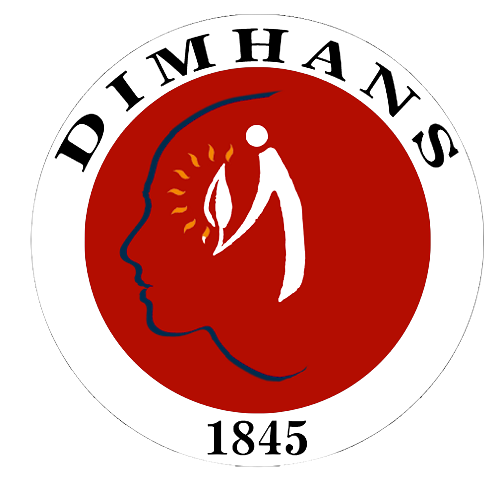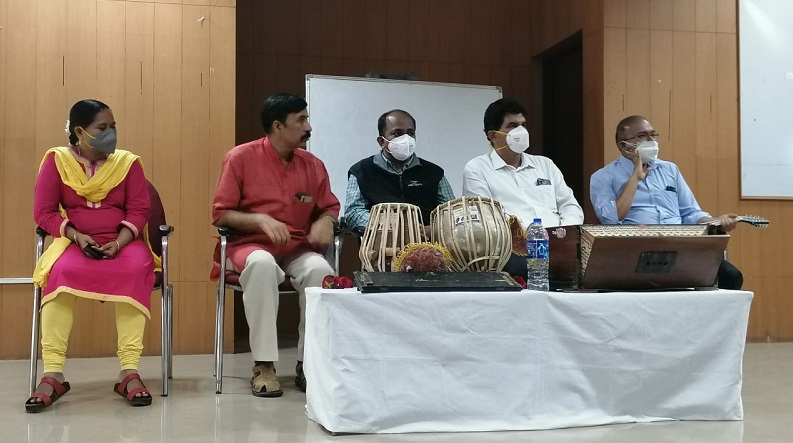ಗೌಪ್ಯತೆ ನೀತಿ: (ವೆಬ್ಸೈಟ್ ಯಾವುದೇ ವೈಯಕ್ತಿಕ ಮಾಹಿತಿಯನ್ನು ಸಂಗ್ರಹಿಸದಿದ್ದಾಗ)
ನೀವು ನಮ್ಮ ವೆಬ್ಸೈಟ್ಗೆ ಭೇಟಿ ನೀಡಿದಾಗ ಹೆಸರುಗಳು ಅಥವಾ ವಿಳಾಸಗಳಂತಹ ಯಾವುದೇ ವೈಯಕ್ತಿಕ ಮಾಹಿತಿಯನ್ನು ನಾವು ಸಂಗ್ರಹಿಸುವುದಿಲ್ಲ. ಆ ಮಾಹಿತಿಯನ್ನು ನಮಗೆ ಒದಗಿಸಲು ನೀವು ಆರಿಸಿದರೆ, ಮಾಹಿತಿಗಾಗಿ ನಿಮ್ಮ ವಿನಂತಿಯನ್ನು ಪೂರೈಸಲು ಮಾತ್ರ ಇದನ್ನು ಬಳಸಲಾಗುತ್ತದೆ
ಬಳಕೆದಾರ ಮಾಹಿತಿ:
ಬಳಕೆದಾರರು ವೆಬ್ಸೈಟ್ಗಳಿಗೆ ಭೇಟಿ ನೀಡಿದಾಗ ನಾವು ತಾಂತ್ರಿಕ ಬಳಕೆದಾರರ ವಿವರಗಳನ್ನು ಸಂಗ್ರಹಿಸುತ್ತೇವೆ ಮತ್ತು ಬ್ರೌಸರ್ ಪ್ರಕಾರ, ಸರ್ವರ್ ಮತ್ತು ಡೊಮೇನ್, ದಿನಾಂಕ ಮತ್ತು ಸಮಯ, ಡೌನ್ಲೋಡ್ ಮಾಡಿದ ದಾಖಲೆಗಳ ವಿವರಗಳನ್ನು ದಾಖಲಿಸಲಾಗಿದೆ, ಈ ಮಾಹಿತಿಯನ್ನು ಸೈಟ್ ಅನ್ನು ಹೆಚ್ಚು ಮಾಡಲು ನಮಗೆ ಸಹಾಯ ಮಾಡಲು ಮಾತ್ರ ಬಳಸಲಾಗುತ್ತದೆ ನಿಮಗೆ ಉಪಯುಕ್ತವಾಗಿದೆ. ಈ ಡೇಟಾದೊಂದಿಗೆ, ನಮ್ಮ ಸೈಟ್ಗೆ ಭೇಟಿ ನೀಡುವವರ ಸಂಖ್ಯೆ ಮತ್ತು ನಮ್ಮ ಸಂದರ್ಶಕರು ಬಳಸುವ ತಂತ್ರಜ್ಞಾನದ ಬಗೆಗೆ ನಾವು ಕಲಿಯುತ್ತೇವೆ. ವ್ಯಕ್ತಿಗಳು ಮತ್ತು ಅವರ ಭೇಟಿಗಳ ಮಾಹಿತಿಯನ್ನು ನಾವು ಎಂದಿಗೂ ಟ್ರ್ಯಾಕ್ ಮಾಡುವುದಿಲ್ಲ ಅಥವಾ ದಾಖಲಿಸುವುದಿಲ್ಲ. (ನ್ಯಾಯಾಲಯವು ವಾರಂಟ್ ಮೂಲಕ ನಿರ್ದೇಶಿಸಿದಾಗ ಹೊರತುಪಡಿಸಿ)
ಕುಕೀಸ್:
ವೆಬ್ಸೈಟ್ನಲ್ಲಿ ಸಂದರ್ಶಕರು ಮಾಹಿತಿಯನ್ನು ಪಡೆದಾಗ ವೆಬ್ಸೈಟ್ಗಳು ಸಾಫ್ಟ್ವೇರ್ ಅನ್ನು ಒದಗಿಸುತ್ತವೆ ಮತ್ತು ಅವುಗಳನ್ನು ಕುಕೀಸ್ ಎಂದು ಕರೆಯಲಾಗುತ್ತದೆ. ಈ ವೆಬ್ಸೈಟ್ನಲ್ಲಿ ಅಂತಹ ಯಾವುದೇ ಕುಕೀಗಳನ್ನು ಬಳಸಲಾಗುವುದಿಲ್ಲ.
ಇಮೇಲ್ ನಿರ್ವಹಣೆ:
ಬಳಕೆದಾರರು ಯಾವುದೇ ಮಾಹಿತಿಯನ್ನು ಆ ಕ್ಷಣಕ್ಕೆ ಮಾತ್ರ ಕಳುಹಿಸಿದಾಗ ಇಮೇಲ್ಗಳನ್ನು ಸಂಗ್ರಹಿಸಲಾಗುತ್ತದೆ ಮತ್ತು ಅವರಿಗೆ ಮಾಹಿತಿಯನ್ನು ನೀಡಲು ಮಾತ್ರ ಬಳಸಲಾಗುತ್ತದೆ. ಇವುಗಳನ್ನು ಯಾವುದೇ ಉದ್ದೇಶಗಳಿಗಾಗಿ ಅಥವಾ ಸಂಪರ್ಕ ಪಟ್ಟಿಯಲ್ಲಿ ಸೇರಿಸಲು ಬಳಸಲಾಗುವುದಿಲ್ಲ. ಬಳಕೆದಾರರಿಗೆ ತಿಳಿಸದೆ, ಅದನ್ನು ಬಹಿರಂಗಪಡಿಸಲಾಗುವುದಿಲ್ಲ.
ವೈಯಕ್ತಿಕ ವಿವರಗಳ ಸಂಗ್ರಹ:
ಬಳಕೆದಾರರು ಯಾವುದೇ ವೈಯಕ್ತಿಕ ಮಾಹಿತಿಯನ್ನು ಕೇಳಿದರೆ ಅಥವಾ ಒದಗಿಸಿದರೆ, ಅದರ ಬಳಕೆಯ ವಿವರಗಳನ್ನು ಉಲ್ಲೇಖಿಸಲಾಗುತ್ತದೆ. ವಿವರಗಳ ಬಗ್ಗೆ ನಿಮಗೆ ತೃಪ್ತಿ ಇಲ್ಲದಿದ್ದರೆ ಅಥವಾ ಅನುಮಾನವಿದ್ದರೆ ಅಥವಾ ಅದರ ಬಗ್ಗೆ ಅಭಿಪ್ರಾಯವನ್ನು ನೀಡಲು ಬಯಸಿದರೆ, ನಿಯೋಜಿತ ವೆಬ್ಮಾಸ್ಟರ್ಗಳನ್ನು ‘ನಮ್ಮನ್ನು ಸಂಪರ್ಕಿಸಿ’ ವಿಭಾಗದ ಅಡಿಯಲ್ಲಿ ಸಂಪರ್ಕಿಸುವುದು ನಿಮಗೆ ಅಗತ್ಯವಾಗಿರುತ್ತದೆ
ಗಮನಿಸಿ: ‘ವೈಯಕ್ತಿಕ ವಿವರಗಳು’ ಅಡಿಯಲ್ಲಿ ಪಡೆದ ಖಾಸಗಿ ಮಾಹಿತಿಯ ತುಣುಕುಗಳನ್ನು ಸುಲಭವಾಗಿ ಗುರುತಿಸಲು ಗುರುತು ಅಥವಾ ಅಂಶಗಳನ್ನು ಸಂಗ್ರಹಿಸಲು ಮಾತ್ರ ಬಳಸಲಾಗುತ್ತದೆ.
ಕುಕೀಸ್:
ವೆಬ್ಸೈಟ್ನಲ್ಲಿ ಸಂದರ್ಶಕರು ಮಾಹಿತಿಯನ್ನು ಪಡೆದಾಗ ವೆಬ್ಸೈಟ್ಗಳು ಸಾಫ್ಟ್ವೇರ್ ಅನ್ನು ಒದಗಿಸುತ್ತವೆ ಮತ್ತು ಅವುಗಳನ್ನು ಕುಕೀಸ್ ಎಂದು ಕರೆಯಲಾಗುತ್ತದೆ. ಈ ವೆಬ್ಸೈಟ್ನಲ್ಲಿ ಅಂತಹ ಯಾವುದೇ ಕುಕೀಗಳನ್ನು ಬಳಸಲಾಗುವುದಿಲ್ಲ.
ಬಳಕೆದಾರರು ವೈಯಕ್ತಿಕ ಮಾಹಿತಿಯನ್ನು ಒದಗಿಸಿದರೆ.
1.ನಿಮಗೆ ಪ್ರತಿಕ್ರಿಯಿಸುವುದನ್ನು ಹೊರತುಪಡಿಸಿ ಬೇರೆ ಯಾವುದೇ ಉದ್ದೇಶಕ್ಕಾಗಿ ನಾವು ವೈಯಕ್ತಿಕ ಮಾಹಿತಿಯನ್ನು ಸಂಗ್ರಹಿಸುವುದಿಲ್ಲ (ಉದಾಹರಣೆಗೆ, ನಿಮ್ಮ ಪ್ರಶ್ನೆಗಳಿಗೆ ಪ್ರತಿಕ್ರಿಯಿಸಲು ಅಥವಾ ನೀವು ಆಯ್ಕೆ ಮಾಡಿದ ಚಂದಾದಾರಿಕೆಗಳನ್ನು ಒದಗಿಸಲು). ಇ-ಮೇಲ್ ವಿಳಾಸ ಅಥವಾ ಅಂಚೆ ವಿಳಾಸದೊಂದಿಗೆ ನಮ್ಮನ್ನು ಸಂಪರ್ಕಿಸುವ ಫಾರ್ಮ್ ಅನ್ನು ಭರ್ತಿ ಮಾಡುವುದು ಮತ್ತು ಅದನ್ನು ವೆಬ್ಸೈಟ್ ಮೂಲಕ ನಮಗೆ ಸಲ್ಲಿಸುವುದು ಮುಂತಾದ ವೈಯಕ್ತಿಕ ಮಾಹಿತಿಯನ್ನು ನಮಗೆ ಒದಗಿಸಲು ನೀವು ಆರಿಸಿದರೆ-ನಿಮ್ಮ ಸಂದೇಶಕ್ಕೆ ಪ್ರತಿಕ್ರಿಯಿಸಲು ಮತ್ತು ನಿಮಗೆ ಸಹಾಯ ಮಾಡಲು ನಾವು ಆ ಮಾಹಿತಿಯನ್ನು ಬಳಸುತ್ತೇವೆ ನೀವು ವಿನಂತಿಸಿದ ಮಾಹಿತಿ. ನಿಮ್ಮ ಪ್ರಶ್ನೆಯು ಆ ಏಜೆನ್ಸಿಗೆ ಸಂಬಂಧಪಟ್ಟಿದ್ದರೆ ಅಥವಾ ಕಾನೂನಿನ ಪ್ರಕಾರ ಅಗತ್ಯವಿದ್ದರೆ ಮಾತ್ರ ನೀವು ನಮಗೆ ನೀಡುವ ಮಾಹಿತಿಯನ್ನು ನಾವು ಬೇರೆ ಸರ್ಕಾರಿ ಏಜೆನ್ಸಿಯೊಂದಿಗೆ ಹಂಚಿಕೊಳ್ಳುತ್ತೇವೆ.
2. ನಮ್ಮ ವೆಬ್ಸೈಟ್ ಎಂದಿಗೂ ಮಾಹಿತಿಯನ್ನು ಸಂಗ್ರಹಿಸುವುದಿಲ್ಲ ಅಥವಾ ವಾಣಿಜ್ಯ ಮಾರುಕಟ್ಟೆಗಾಗಿ ವೈಯಕ್ತಿಕ ಪ್ರೊಫೈಲ್ಗಳನ್ನು ರಚಿಸುವುದಿಲ್ಲ. ಯಾವುದೇ ಒಳಬರುವ ಪ್ರಶ್ನೆಗಳು ಅಥವಾ ಕಾಮೆಂಟ್ಗಳಿಗೆ ಸ್ಥಳೀಯ ಪ್ರತಿಕ್ರಿಯೆಗಾಗಿ ನೀವು ಇಮೇಲ್ ವಿಳಾಸವನ್ನು ಒದಗಿಸಬೇಕಾದರೂ, ನೀವು ಯಾವುದೇ ವೈಯಕ್ತಿಕ ಮಾಹಿತಿಯನ್ನು ಸೇರಿಸಬೇಡಿ ಎಂದು ನಾವು ಶಿಫಾರಸು ಮಾಡುತ್ತೇವೆ.
ವೆಬ್ಸೈಟ್ ಭದ್ರತೆ
1)ಎಲ್ಲರಿಗೂ ಮಾಹಿತಿಯನ್ನು ಲಭ್ಯವಾಗುವಂತೆ ಮಾಡಲು, ಅನಧಿಕೃತ ಬಳಕೆದಾರರ ಪ್ರವೇಶವನ್ನು ತಡೆಯಲು, ಮಾಹಿತಿಗೆ ಹಾನಿಯಾಗದಂತೆ ಅಥವಾ ವಿರೂಪಗೊಳಿಸುವುದನ್ನು ನಿಲ್ಲಿಸಲು ಮತ್ತು ವೆಬ್ಸೈಟ್ನ ಸುರಕ್ಷತೆಯನ್ನು ಗಮನದಲ್ಲಿಟ್ಟುಕೊಳ್ಳಲು, ಬಳಕೆದಾರರ ದಟ್ಟಣೆಯನ್ನು ನಿರ್ವಹಿಸಲು, ವಾಣಿಜ್ಯ ಸಾಫ್ಟ್ವೇರ್ ಪ್ರೋಗ್ರಾಮ್ಗಳನ್ನು ಬಳಸಲಾಗುತ್ತದೆ.
2)ಅಧಿಕೃತ ಕಾನೂನು ಸಂಸ್ಥೆಗಳನ್ನು ಹೊರತುಪಡಿಸಿ, ಸಂದರ್ಶಕ ಅಥವಾ ಬಳಕೆದಾರರನ್ನು ವೈಯಕ್ತಿಕವಾಗಿ ಗುರುತಿಸಲು ಯಾವುದೇ ಪ್ರಯತ್ನಗಳು ನಡೆಯುವುದಿಲ್ಲ.
3)ಸಂದರ್ಶಕರ ಮಾಹಿತಿಯು ನಿಯಮಿತ ಅಳಿಸುವಿಕೆಗೆ ಒಳಪಟ್ಟಿರುತ್ತದೆ
4)ಅನಧಿಕೃತ ಬಳಕೆದಾರರು ಲಭ್ಯವಿರುವ ಮಾಹಿತಿಯನ್ನು ಸೇರಿಸುವುದಿಲ್ಲ ಅಥವಾ ಬದಲಾಯಿಸಬಾರದು ಅದು ಕಾನೂನು ಪರಿಣಾಮಗಳನ್ನು ಉಂಟುಮಾಡಬಹುದು ಮತ್ತು ಐಟಿ ಆಕ್ಟ್ (2000) ಅಡಿಯಲ್ಲಿ ದಂಡಕ್ಕೆ ಒಳಗಾಗಬಹುದು..


















